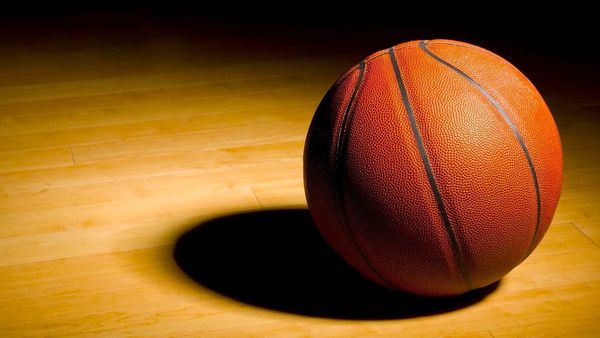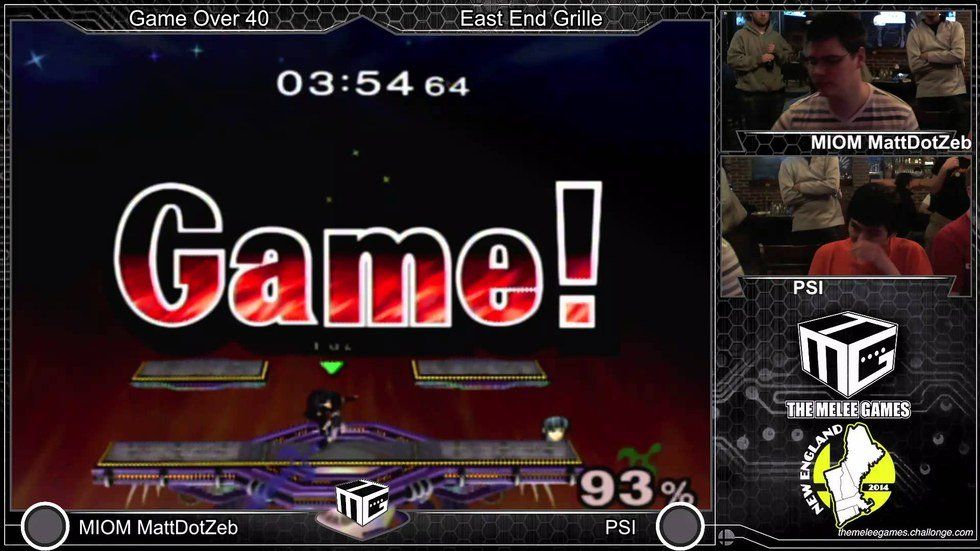So now you're here, at your local weekly tournament venue or LAN party. You pay your fees, sign up for a bracket, and you have to play your first match. You find your opponent, and you both sit down at a setup. You both pick your characters and start playing out the match. Suddenly, the game is over. You lost. In a matter of minutes, you were steamrolled, shut down, and utterly destroyed. How did this happen? Why? These are the questions you ask yourself in those sad, salty moments following your defeat. I want to try helping you answer them in the most helpful and productive way that I can think of.
1. Why did I lose?
A: The most likely reason is that your opponent was better than you. They were likely more skilled, experienced, and knowledgeable about the game than you were. And that's just fine. Time is the greatest teacher of all, and only through hours of dedication and practice will you achieve greatness.
2. But I shouldn't have lost. I have more skill, experience, and knowledge than my opponent, and still lost. Why?
A: Here is where mentality and mindset need to be invoked. "Should have," "could have," and "would have" are all conditional statements that reflect a level of doubt and insecurity about yourself and your gameplay. If you "should have" won, then why didn't you win? Sure, you might actually be the better player, but it doesn't change the fact that you still lost. The win is all that really matters in the end, and if you didn't win, can you really call yourself the "better" player? Personally, I think it's critical to lose the airs of superiority and overconfidence during competition. Never underestimate your opponent. You want to treat your opponents equally with a certain level of respect for their ability to play the game, especially if you've never played them before and don't know how they will play. A wise man once said: "Confidence... It's the food of the wise man, but the liquor of the fool." Think on that for a moment.
At the same time, don't sell yourself short. I believe that everyone is capable of doing great things; talent is something the lucky few are born with, but ability and skill are qualities that that everyone can build up and hone. It's important to know where you are skill level-wise, both on the grand scale of the game and on the local scale. Be humble, but not so humble that you don't have any confidence in yourself and you end up giving too much credit to your opponent. What I'm really trying to say here is to be aware of your strengths and weaknesses. When you're competing, focus on your strengths so that you can maintain a level of confidence that is sufficient to keep you in the fight. When you're training, focus on your weaknesses so that you can maximize your potential improvement. To borrow another aphorism: "Know thyself." When you become fully aware of you and your opponent's respective capabilities, the game becomes that much clearer, and the playing field a little more leveled.
3. Yeah, okay. I would have won if I hadn't choked. I basically gave the game to him in a nice little box with a ribbon and bow tie. How do I stop doing that?
A: What is "choking?" It happens during a high-stakes, high-pressure situation, and your body starts to shut down and everything is failing. You miss your button inputs. You accidentally throw one of your lives away. You crumble under the tension and crushing weight of the game. I see choking as the body's unconscious, reflexive response to pressure that basically says: "You're not ready." You're not ready to win. It's too early in your development as a competitor for you to have this victory. Not now. Maybe later, but not now.
Another aspect of competition that I think is incredibly important is your mindset towards the potential outcomes of a match. I've learned that the desire to win should be your primary motivational tool, in contrast to the desire to not lose to that awful scrub. When pride is all that you have to lose at your local tournament scene, you really do try as hard as you can to not embarrass yourself by losing to a "worse" player. You want to avoid the shame that comes with defeat. I think this approach is actually quite harmful and reductive. If your opponent is going even with you (or even winning against you), give them credit for being able to do so. Even if you are performing poorly, recognize that poor performance doesn't entitle you to make excuses for your defeat and invalidate your opponent's victory. Instead, if someone you didn't expect to do well against you is doing exactly that, make it your goal to defeat them. Forget about your assumptions and expectations of your opponent; realize that they have a real chance at beating you and treat them with the same respect that you would give for a better player. By doing so, you're entering a state of mind that emphasizes focus and a burning desire to win. I've found that putting it in terms of "I really want to win" instead of "I really don't want to lose" has helped me personally in many games.
So those are my thoughts on mentality towards losing in competitive gaming. Of course, I have a lot more to say and discuss (including the other side of the coin: winning!), but here's just a slice of the pie. What do you think? Agree? Think I'm full of it and don't know what I'm talking about? Let me know! We can talk all about it.
P.S. For readers interested in mentality and mindset, see:
1. The Art of War
2. The Inner Game of Tennis
3. Robert "Wobbles" Wright's blog on "The art of competition and growth" http://www.compete-complete.com/
P.P.S. Did not mean to throw any shade at MattDotZeb, I just wanted the "Game!" screen image in high resolution.





















